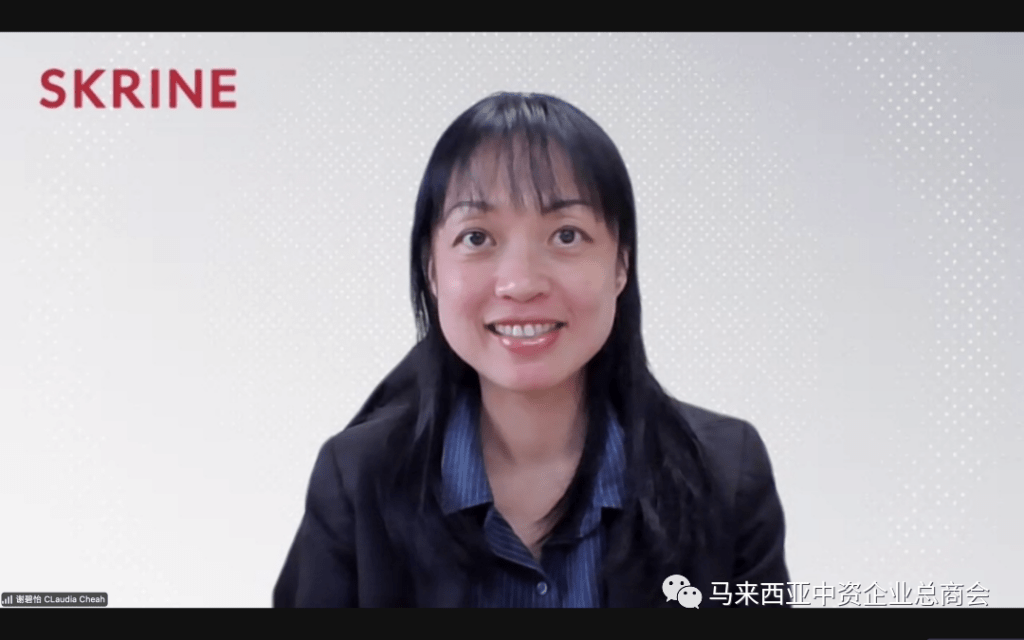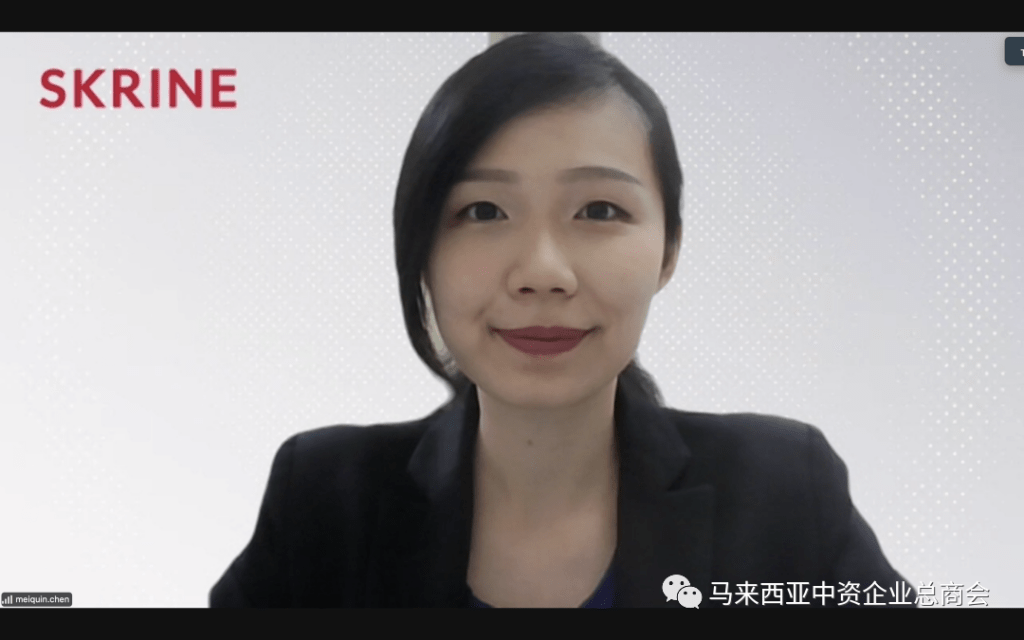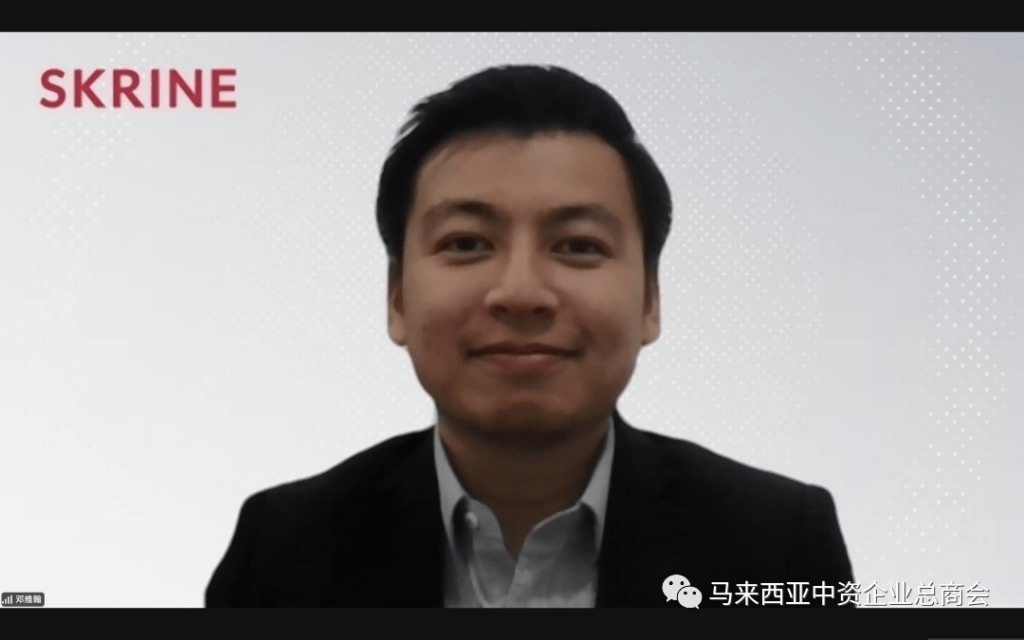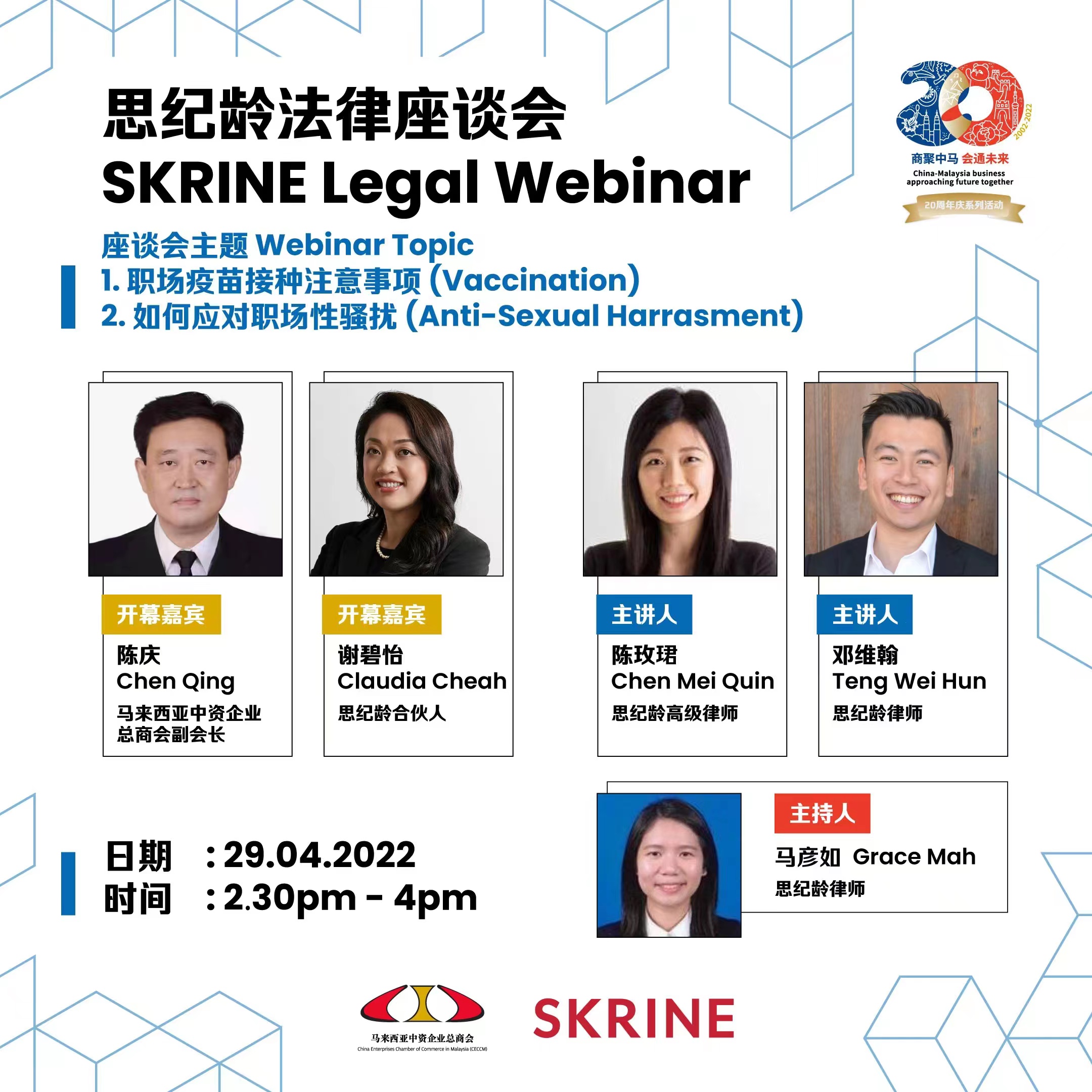
由马来西亚中资企业总商会与思纪龄律师事务所联合主办的法律座谈会于2022年4月29日顺利举办。马来西亚中资企业总商会副会长陈庆先生、中资企业代表、公众人士及媒体朋友们等在线上一同参与。此座谈会主要围绕职场疫苗接种注意事项及职场性骚扰相关政策,为参会者进行专业分析及解答。

陈庆副会长在致开幕辞中表示,此次是总商会与思纪龄律师事务所的第三次合作。受过去两年疫情的影响,座谈会形式从线下走向线上,双方仍积极推动、努力为广大会员组织本次法律座谈会,不变的是服务会员及回馈本地社会的决心。他认为,有关重返职场办公的员工疫苗接种事项及职场性骚扰的课题,与构建一个安全健康的职场环境息息相关。企业必须发挥自身的责任与监督作用,强化自身的规章制度,引导员工预防和制止职场性骚扰的发生。他期望透过思纪龄律师事务所的专业分享,所有参会者都能从中提升自身对有关课题法律知识的了解,进而受益于法律的保护。

思纪龄法律师事务所合伙人谢碧怡女士在致辞中表示,自2022年4月14日马来西亚卫生部长凯里宣布,政府将允许符合条件的民众再次接种加强剂,许多企业都对重返职场办公的员工疫苗接种标准感到困惑。此次座谈会将就疫情当下的职场进行深入探讨,为企业解答如何针对当前的疫苗政策,为员工制定新一套的标准作业程序,保障雇主与员工之间的健康安全。另外,有关上个月于国会提呈首读的《2021年性骚扰法案》也是近期引发热烈关注的课题,企业对于相关法令的了解也将为员工带来更完整的权益保障。

陈玫珺律师在分享有关职场疫苗接种的注意事项时谈到,从劳资法的角度来看,目前雇主并不获准强制员工接种疫苗。在未获法律准许的情况之下,雇主若强迫员工接种疫苗,将面对构成他人人身伤害的罪名刑罚。她表示,雇主仅可透过鼓励、奖励等其他形式倡导员工进行疫苗接种,以此降低员工确诊对其工作场所带来的影响。然而,雇主可以把接种疫苗列为征聘条件之一。

邓维翰律师在分析职场性骚扰课题时表示,一旦“2021年反性骚扰法案”在国会通过,受害者即可通过“反性骚扰仲裁庭”起诉骚扰者。此仲裁庭将专门审理和裁决所有性骚扰投报,并且为受害者向骚扰者索取赔偿,切实弥补其所蒙受的损失或损害。这对马来西亚反性骚扰法令的完善无疑是一大跃进。他也强调,根据1955年劳工法令,雇主若拒绝或未及时对员工的性骚扰投报采取适当的行动,将可能面临劳工部的罚款。
在问答环节中,两位主讲律师也对提问进行了详实的解答。本次座谈会为参会者提升了专业的法律知识及维权意识,充分发挥了总商会“维护中资企业合法权益”的立会宗旨,帮助参会企业构建更健康、安全且具有包容性的职场环境,并提醒企业时刻切记守规依法,使参会者获益良多。
On 29th April 2022, China Enterprises Chamber of Commerce in Malaysia (CECCM) and SKRINE had jointly organized a legal webinar. Vice President of CECCM, Chen Qing, Partners of SKRINE, Claudia Cheah, members of CECCM, media and the public joined in the webinar focusing on two main topic which are the Anti-sexual harassment and Vaccination in Workplace.
Vice President of CECCM, Chen Qing said in his opening remarks that this is the third collaboration between CECCM and SKRINE. In the past two years, both parties are still actively promoting and striving to organize legal webinar for its members despite the pandemic. He believes that issues related to employee vaccinations and workplace sexual harassment when returning to the workplace are closely related to building a safe and healthy workplace environment. Enterprises must play their responsibility and supervisory roles, strengthen their own rules and regulations, and guide employees to prevent and stop the occurrence of sexual harassment in the workplace. He hoped that through this webinar, all the participants could enhance their understanding of the legal knowledge and benefit from the protection of the law.
Partners of SKRINE, Claudia Cheah said that since the Ministry of Health announced on April 14, 2022 that the government will allow eligible people to be vaccinated again with boosters, many companies are concerned about returning to the workplace. This symposium will conduct in-depth discussions on the current workplace during the epidemic and answer how to provide a new set of standard operating procedures for employees in response to the current vaccination policy to ensure the health and safety of employers and employees. In addition, the “Sexual Harassment Act 2021”, which was tabled in Congress for the first reading last month, has also attracted wide attention recently. This will also bring more complete protection of the rights and interests of their employees.
When sharing the precautions about workplace vaccination, speaker from SKRINE, Chen Meiquin said that from the perspective of labor law, employers are currently not allowed to compel employees to be vaccinated. Employers who force employees to be vaccinated without legal permission will face penalties. Employers can only advocate for employees to get vaccinated through other forms of encouragement, rewards, etc., so as to reduce the impact of an employee’s diagnosis on their workplace, she said. However, employers can include vaccination as a condition of recruitment.
When analyzing the issue of workplace sexual harassment, speaker from SKRINE, Teng Wei Hun said that once the “2021 Anti-Sexual Harassment Act” is passed in Congress, victims can sue the harasser through the “Anti-Sexual Harassment Tribunal”. This tribunal will specifically hear and adjudicate all complaints of sexual harassment, and will seek compensation from the harasser for the victim to effectively compensate for the loss or damage suffered. This is undoubtedly a great leap forward in the improvement of Malaysia’s anti-sexual harassment laws. He also stressed that under the Labour Act 1955, employers who refuse or fail to take appropriate action on employee sexual harassment reports could face fines from the Department of Labour.
During the question and answer session, the speakers also gave detailed answers to the questions. This symposium enhanced the participants’ professional legal knowledge and awareness of rights protection and helped participating enterprises to build a healthier, safer and more inclusive workplace environment, and remind enterprises to always abide by the laws and regulations.






